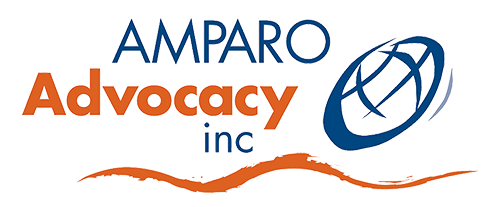History
January 2000
A Multicultural Disability Network was formed out of a growing awareness by those in the multicultural sector that people from a culturally and linguistically diverse background with disability were missing out on essential services, support and information.
April 2000
In April 2000 the National Ethnic Disability Association (NEDA) approached the Multicultural Disability Network (MDN) with a seeding grant to undertake a research project to determine what model of advocacy could best address the unmet needs of Queenslanders from a culturally and linguistically diverse background (CALD) with disability. This project was auspiced by the Multicultural Development Association (MDA).
September 2021
State-wide forums were held and in September 2001 a report, 3 Out Of 4 – Developing a Multicultural Disability Advocacy Service for Queensland, identified that Queensland was the only mainland state without an organisation addressing the specific advocacy needs of people from a CALD background with disability, and that their fundamental needs were largely going unaddressed by government and non-government organisations. Recommendations were made for strong independent advocacy in Queensland to ensure human rights were upheld and that people could achieve equal access to services and resources within the community.
July 2001
As a result of this work in July 2001 Disability Services Queensland provided a small amount of recurrent funding to support the development of a new multicultural disability advocacy association, with Multicultural Affairs Queensland contributing non-recurrent funding for establishment costs. The Multicultural Development Association continued to auspice and manage these funds until the new group’s incorporation. At this time there was a great deal of excitement and enthusiasm to explore what this new ‘advocacy’ agency could look like and a need also to clarify what independent advocacy was and how it differed from service provision and community development.
December 2001
In December 2001 Jen Barrkman was employed to undertake advocacy and organisational development. Jen’s first task was to set about finding people from a culturally and linguistically diverse background with disability to form a steering committee to help develop this new advocacy organisation. By April 2002 a formal steering committee had been established, made up of people with disability and family members from a CALD background, to identify the values, beliefs and direction for the new organisation.
One of the members of this steering group was a woman called Amparo, who was from Columbia and the parent of a child with disability. AMPARO is a Spanish word which is used to describe actions that guard individual civil rights. Literally, AMPARO signifies protection, shelter, defence, assistance and human refuge. The steering committee decided that this was the perfect name for an organisation that sought to protect the rights and fundamental needs of people from a CALD background with disability.
June 2003
In June 2003 AMPARO Advocacy held the Advocacy, Disability and Culture Forum in Brisbane which achieved the purpose of raising the profile of AMPARO Advocacy, identified potential new members, improved connections across the disability and multicultural community sectors and most importantly, raised the consciousness of participants of the need to provide strong independent advocacy for people from a culturally and linguistically diverse background with disability.
August 2003
Then in August 2003, despite an unsuccessful attempt to gain Commonwealth funding, AMPARO Advocacy was pleased to attract a small amount of additional funding from the State government. The steering committee worked hard to develop a clear vision and direction for an independent social advocacy organisation and in March 2004 AMPARO Advocacy became incorporated and soon after moved to its current location in Milton.
2005
By 2005, AMPARO Advocacy had begun to take up systemic issues on behalf of Queenslanders from a CALD background with disability, including issues around the States Have Your Say consultations, the proposed new Disability Services Act and new Quality Assurance measures.
A major change for the organisation came in October 2005, when additional State funding meant independent individual advocacy could now be provided on behalf of vulnerable individuals from a CALD background with disability living in the Brisbane area and two part-time advocates were employed to undertake this work. At this time significant efforts went into informing multicultural workers, community leaders and people with disability and their families from culturally and linguistically diverse backgrounds of this important new role for AMPARO Advocacy.
2007
In 2007, drawing on the learnings from providing individual advocacy, AMPARO Advocacy launched its own public policy document, Language and Culture Matter: Remove the Barriers Now, addressing the needs of people from a CALD background with disability. This document highlighted the additional systemic barriers and issues of discrimination people were experiencing and called on State and Federal Governments to address a total of 17 recommendations. A key focus in the early systemic work was the need for the State Government to fund the provision of qualified interpreters so that people from a CALD background with disability, as well as their families, could have equitable access to information, services and supports and importantly to participate and contribute to decisions which affected their lives.
January 2008
In early 2008 AMPARO Advocacy became a founding member of the Queensland Accessing Interpreters Working Group, formed by a number of organisations and peak bodies who were concerned with the lack of access to fee free interpreting services. AMPARO Advocacy with our allies in the community sector continued to advocate for high quality language services to be supported by culturally competent services systems to fulfill the principles of equitable access, social justice and social inclusion for people from a CALD background with disability.
November 2008
In late 2008 the Working Group launched A Matter of Interpretation with 42 organisations from around the State supporting this work. The significant efforts of this group resulted in the Premier of the time, Anna Bligh advising all Queensland Government Departments to make provision to meet the costs of interpreter services for their funded non-government organisations. This was a major achievement for the Queensland Accessing Interpreters Working Group.
2009
Other major systemic advocacy over the years has included providing submissions and attending formal hearings and inquiries to influence positive sustainable changes to policies, legislation and resources that impact negatively on the lives of people from CALD background with disability. Some of which has included: the Joint Standing Committee on Migration and the Inquiry into the Migration Treatment of Disability; the Productivity Commission Inquiry into a Long Term Disability Care and Support Scheme; National Human Rights Strategy; National Disability Advocacy Framework; Queensland’s Language Service Policies; and the National Disability Long-term Care and Support Scheme. Through the years AMPARO Advocacy has been invited and participated in government and community forums and working groups to highlight the significant disadvantage and unmet needs of those we are funded to serve.
As AMPARO Advocacy developed broader connections and became better known, enquiries and requests for individual advocacy continued to increase. The limited resources of the organisation became increasingly apparent, with many people who were eligible being turned away due to a lack of capacity. To strengthen capacity the organisation focused on increasing the membership, encouraging student placements and securing additional recurrent and non-recurrent funding.
2010
In 2010 the organisation recognised the need to reach out to diverse communities in the Brisbane area to provide culturally appropriate information about the rights of people with disability and the availability of advocacy, services and information, to increase their access to these essential supports. Funds were secured from Multicultural Affairs Queensland to undertake a project to provide this information to the Karen, Afghan, Iraqi and Burundi communities in the Brisbane area. With the support of bi-cultural consultants 150 people from these communities participated in this important work. The results of which provided to government and further contributed to our knowledge and understanding of the experiences of refugees with disability.
In late 2010 a comprehensive submission was completed and provided to Disability Services highlighting the funding limitations at a time when the unmet demand for advocacy was rapidly increasing. Despite a number of requests AMPARO Advocacy has not been successful in attracting additional recurrent funding, and a change of government and policy meant that in January 2013 the organisation experienced a 10% cut in recurrent funding.
However AMPARO Advocacy has been able to increase its financial capacity to maintain the full-time individual advocacy position through successfully attracting philanthropy funding and through income generated by the provision of training and information.
2013 - 2015
AMPARO Advocacy was very excited to be approached by the School of Public Health and Social Work at Queensland University of Technology (QUT) in 2013 to participate in a research project: An exploration of the barriers to services and inclusion of refugees living with disability. This project is currently being carried out by Dr Julie King, Dr Ignacio Correa-Valez, Dr Kiki Edwards from QUT and AMPARO Advocacy has supported the participation of ten individuals and family members. The results of which will be published in early 2015.
AMPARO Advocacy believes that societal responses to vulnerable people can be extremely inadequate and strong social advocacy on their behalf is often needed to represent their needs and interests and to bring about positive and sustainable changes to their lives.
AMPARO Advocacy has developed a strong record of defending the rights and interests of people with disability from a broad range of cultural and linguistic backgrounds, many of whom have come to this country as refugees under Australia’s Humanitarian Program. People we work with have often been through incredible hardship and loss prior to coming to this country and AMPARO Advocacy is fortunate to be in a position to support their active participation, contribution and inclusion in family and community life.

